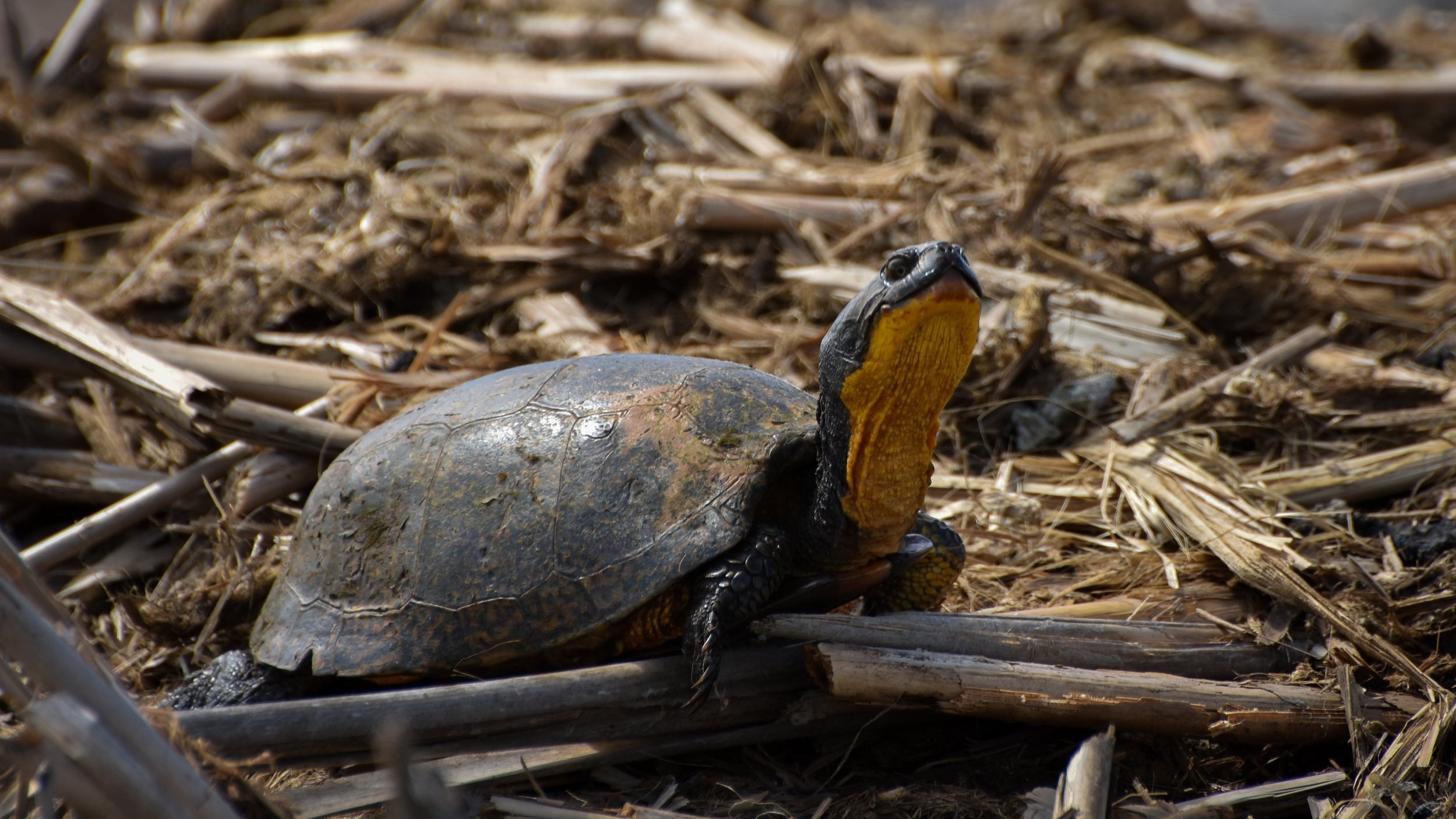
Nature doesn’t have a voice in the Ford Government – but you do!
Quick Facts about Bill 5
Time is Running Out - Keep the Pressure On!
Spotted Turtle, Photo by Tyler AmbeauIf passed into law, Bill 5 – Protect Ontario by Unleashing our Economy Act will have devastating consequences for our province through several alarming changes, including:
Repeal environmental protections by repealing Ontario’s Endangered Species Act, 2007, replacing it with a weaker Species Conservation Act, 2025, and removing effective protections for species at risk and their habitats.
Remove protection for habitats by “redefining” habitat, which flagrantly ignores science, and reduces protected areas to only the immediate surroundings, ignoring crucial feeding grounds and migration corridors that species depend on for survival. This would leave species that are already in decline due to habitat loss without the basic things they need to survive. The remaining landscape could resemble a moonscape without regulation. Even “harassment” of at-risk wildlife would be unregulated.
Remove the independent and science-based assessments process for species protection by granting the government unprecedented power to decide which endangered species are added or removed from the protection list. The government will be free to make these changes based on political and economic considerations, rather than scientific evidence.
Offload responsibility for migratory birds and aquatic species to the federal government is an unprecedented abrogation of provincial responsibility and negates the essential collaboration between both levels of government. The proposed amendment, in conjunction with the revised habitat definition in the provincial proposal, reduces protection for species that are exclusively listed at the provincial level.
Removing oversight and accountability as developers can begin harmful activities immediately after self-registration without ministry review or approval. Crucial environmental assessments will be eliminated, preventing the ability to mitigate damage before it occurs, with inadequate penalties. This approach to environmental law will devastate wildlife habitats. Although some permitting powers exist, they are weak. This registry is also not required to be public. Bill 5 further reduces the role of Conservation Authorities, limiting their review of development applications to flood control rather than the more integrated approach to watershed management.
Remove the requirement for the government to develop a recovery strategy, management plans, response statements or a species’ review of progress. By no longer tracking species at risk and removing the requirement for recovery strategies, the Ontario government is effectively removing the onus to ensure conservation programs and initiatives result in species recovery. Without recovery strategies, assessing, mitigating, and avoiding harms to species will be next to impossible. The Bill is so narrow that it would virtually ensure continued decline, extinction, or extirpation.
Failing to address the ongoing decline of endangered species. The text and preamble of the Species Conservation Act create an impression that it is purely performative and is not intended to prevent the ongoing decline of endangered species in practice.
Opening the doors to unregulated industry through the creation of Special Economic Zones, which would enable unregulated mining, oil, and extractive industries, further threatening Ontario’s ecosystems. Bill 5 grants the premier and cabinet full authority over decisions typically made by the legislature. This means they could decide which provincial and municipal laws would apply to “special economic zones”, the geographic extent of the law’s applicability, and even the specific individuals and companies to which the law applies. By empowering the premier to create special economic zones, “trusted proponents” will be given the authority to undertake projects without regard to provincial municipal laws and bylaws. These virtually unlimited powers are without any checks or balances.
Exempting the government from legal accountability for decisions related to Special Economic Zones, undermines the Rule of Law.
Failing to recognize Indigenous Peoples’ right to free, prior, and informed consent (FPIC). The proposal (ERO 025-0396) to terminate the comprehensive environmental assessment process for the Eagle’s Nest mine in the Ring of Fire creates the potential for developments without the consent of impacted Indigenous Peoples.
Eastern Wood-Pewee, Photo by Michael MillMonarch Butterfly, Photo by Heather Cutchin Eastern Milksnake, Photo by Jason Ondreicka Check out some of the responses to this Bill:
This information has been adapted from the work of Clara Lynas - Lead Nature Steward at Toronto Nature Stewards, Ontario Nature, Ecojustice, Environmental Defence, and the Canadian Environmental Law Association. Our sincerest thanks to these organizations for their leadership and for sharing their knowledge with others across our province.




